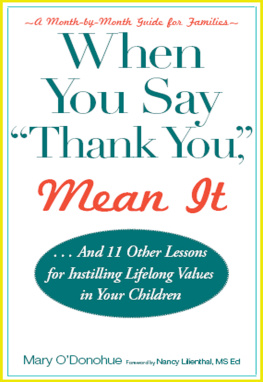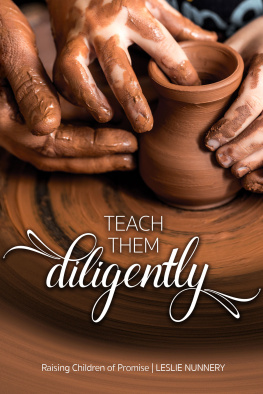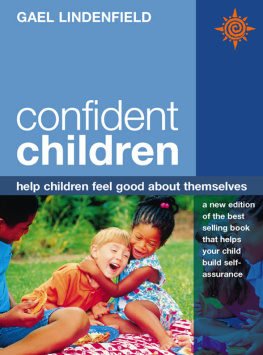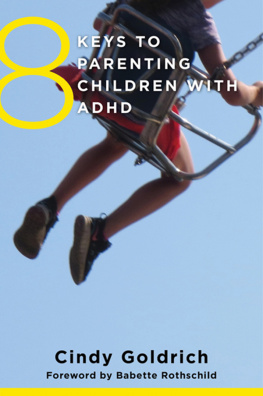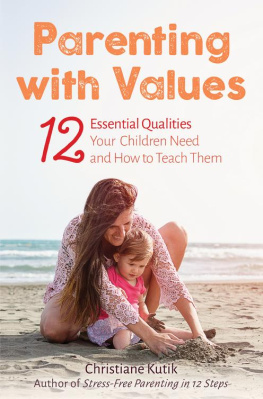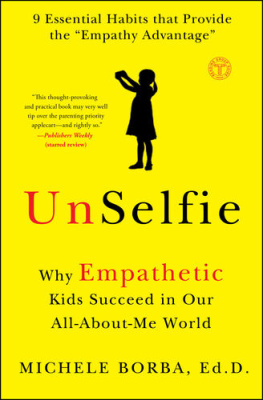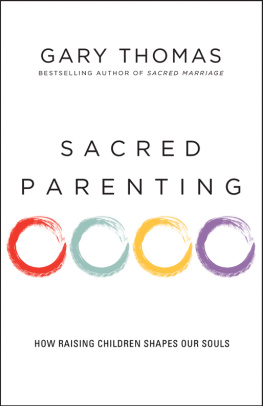Children Learn What They Live
Parenting to Inspire Values

by Dorothy Law Nolte
author of the classic poem
Children Learn What They Live
and Rachel Harris
Illustrated by Annette Cable
Workman Publishing, New York
Copyright 1998 by Dorothy Law Nolte and Rachel Harris
The poem Children Learn What They Live on page vi copyright 1972 by Dorothy Law Nolte
Illustrations copyright 1998 by Annette Cable
All rights reserved. No portion of this book may be reproducedmechanically, electronically, or by any other means, including photocopyingwithout written permission of the publisher. Published simultaneously in Canada by Thomas Allen & Son Limited.
Library of Congress Cataloging-in-Publication Data
Nolte, Dorothy
Children learn what they live : parenting to inspire values/
by Dorothy Law Nolte and Rachel Harris.
p. cm.
eISBN 9780761157106
1. Parenting. 2. Parent and child. 3. Child rearing 4. Example.
I. Harris, Rachel. II. Title.
HQ755.8.N62 1998
649.1dc21 97-49243
CIP
Workman books are available at special discounts when purchased in bulk for premiums and sales promotions as well as for fund-raising or educational use. Special editions or book excerpts can also be created to specification. For details, contact the Special Sales Director at the address below.
Workman Publishing Company, Inc.
225 Varick Street
New York, NY 10014-4381
DEDICATION
I dedicate this book in love and light
to all the children of life.
DOROTHY LAW NOLTE
To my daughter, Ashley, who has taught
me about love and parenting.
RACHEL HARRIS
ACKNOWLEDGMENTS
Our heartfelt appreciation goes to our editor, Margot Herrera, for her many contributions and insights in the writing of this book. We are also grateful to Janet Hulstrand for her close attention and perceptive additions to the manuscript. Warm thanks to designer Nancy Gonzalez, as well as to Bob Silverstein, our agent.
CONTENTS
Children Learn What They Live
If children live with criticism, they learn to condemn.
If children live with hostility, they learn to fight.
If children live with fear, they learn to be apprehensive.
If children live with pity, they learn to feel sorry for themselves.
If children live with ridicule, they learn to feel shy.
If children live with jealousy, they learn to feel envy.
If children live with shame, they learn to feel guilty.
If children live with encouragement, they learn confidence.
If children live with tolerance, they learn patience.
If children live with praise, they learn appreciation.
If children live with acceptance, they learn to love.
If children live with approval, they learn to like themselves.
If children live with recognition, they learn it is good to have a goal.
If children live with sharing, they learn generosity.
If children live with honesty, they learn truthfulness.
If children live with fairness, they learn justice.
If children live with kindness and consideration, they learn respect.
If children live with security, they learn to have faith in themselves and in those about them.
If children live with friendliness, they learn the world is a nice place in which to live.
Dorothy Law Nolte
FOREWORD
by Jack Canfield,
Co-author, Chicken Soup for the Soul
and Chicken Soup for the Mothers Soul

I first discovered Children Learn What They Live in the early seventies when I was writing a book on how to build childrens self-esteem in the classroom. I instantly fell in love with the poem and reproduced it for all the teachers in the school where I taught. Every line seemed to contain a statement that I intuitively knew to be the truth. I was astounded that so much wisdom could be encapsulated in so few words.
It never occurred to me that I would ever meet the author of the poem, but several years later I did meet Dorothy, and her husband Claude, at a psychology conference. They graciously invited me to their room and treated me with all the acceptance, kindness, encouragement, and friendliness that Dorothy had written about in the poem. It was an evening I will never forget. I doubt they ever guessed how much influence their love and caring had had on a young educator who was struggling to learn to love himself and to teach his students to love and accept themselves, as well.
Children Learn What They Live served as a set of guiding principles for my interactions with my students and, later, my interactions with my three sons. As with all principles for living and parenting, they are easier to talk and write about than to put into daily practice.
In my thirty years as an educator and leader of parenting workshops, I have come to believe that most parents truly want to be loving, kind, compassionate, accepting, honest, and fair with their children. The problem is that most parents have never had a course in the specific methods and techniques of interaction, communication, and discipline that produce compassionate, caring, honest, and fair parenting.
No parent I have ever known wakes up in the morning, turns to his or her spouse and says, Ive just thought of four really great ways to destroy little Billys self-esteem. We can judge him, ridicule him, shame him, and lie to him. Nobody ever sets out to purposely hurt their children, and yet parents often do just that. Its not intentional. It is usually out of unawareness and fear that parents pass on their own limited beliefs and emotional hang-ups to their children.
It takes an act of courage and consciousness to break the negative and destructive patterns that may unconsciously control our interactions with our children and to choose to live consciously and intentionally with the purpose of raising healthy, happy, and well-adjusted children.
In Children Learn What They Live Dorothy Law Nolte has taken each line of her classic poem and taught us allthrough anecdotes and specific exampleshow to put into daily action the valuable precepts it contains. She masterfully conveys, in simple and easy-to-understand language, how to be less critical and more tolerant, less judgmental and more accepting, less shaming and more encouraging, less hostile and more child-friendly.
You also get an extra bonus when you read this book: in addition to learning how to be a more effective parent, you will also learn how to be a better spouse, teacher, and manager. The principles and methods presented here are universal principles for bringing about loving, respectful, affirming, and empowering relationships with anyone. I firmly believe that if everyone practiced these principles in all of their relationships, there would be less violence and fewer wars, fewer strikes and more productivity in the workplace, less acting out and more time spent learning in the classroom. Wed have fewer people in prisons, on welfare, and in drug rehab centers. I encourage you to consider that most of the worlds problems begin in the home, and by becoming a better parent, you are making the most solid contribution you can to solving the huge, seemingly intractable problems we face in the world today.
No matter how good a parent you currently are, you are about to embark on an adventure that will take you to the next level of magic. What could be more rewarding than knowing that you are becoming better able to raise children that are confident, assertive, patient, appreciative, loving, goal-oriented, generous, truthful, fair, respectful, and friendly? Imagine a world where every child grew up to become an adult who manifested those qualities. Can you imagine a Washington, D.C., where every politician demonstrated these qualities? I can. I know Dorothy can. I am sure that is what motivates all of us who are in the business of growing people to continue our work.


